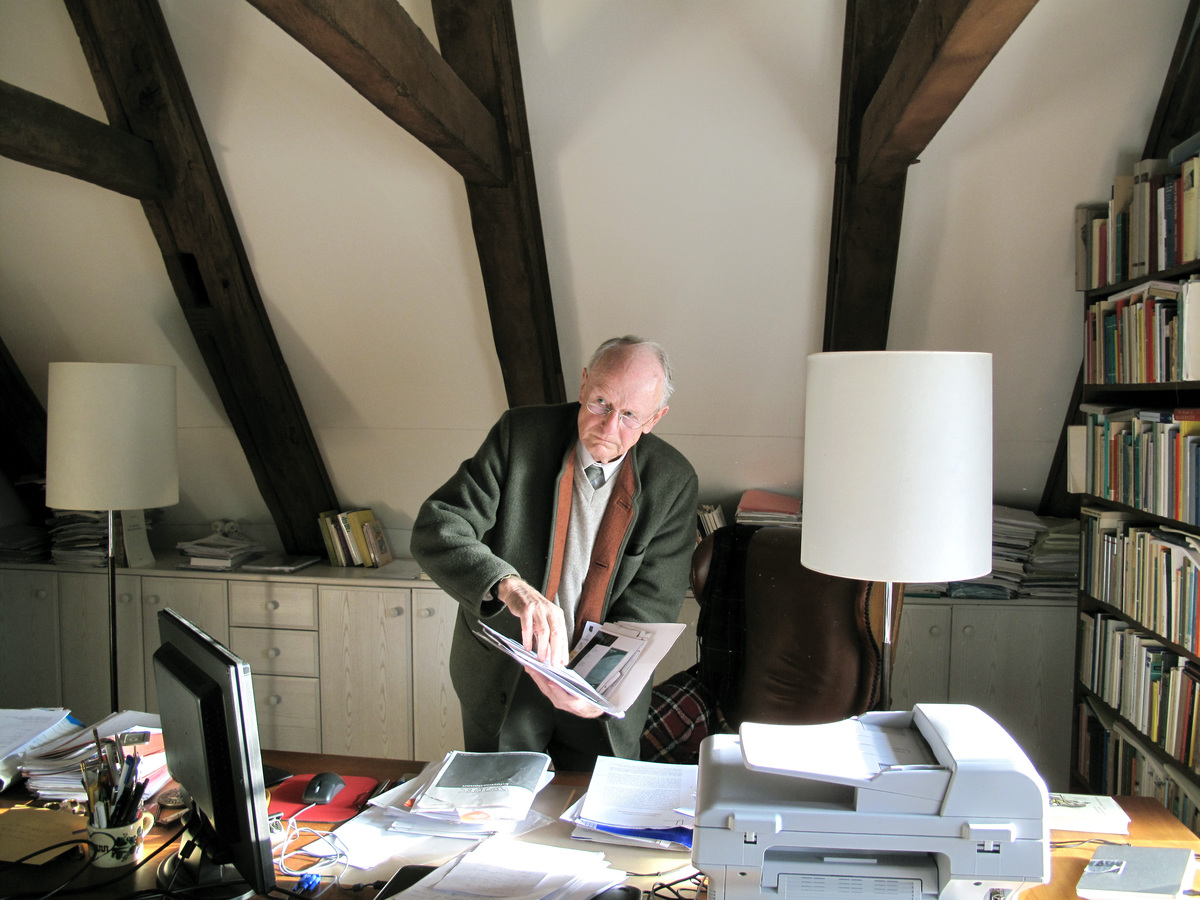Source

Source: The philosopher Hermann Lübbe, born in Aurich on December 31, 1926, at his home in Havixbeck near Münster on December 30, 2008. Photo: Markus C. Hurek. Picture Alliance, media no. 13727315.
In 1983, the conservative philosopher Hermann Lübbe (born 1926) delivered a controversial speech on the 50th anniversary of the Nazi seizure of power in 1933. He criticized the widespread assumption that the National Socialist past had been suppressed in the early days of the Federal Republic. He also defended the hesitant reappraisal of the Nazi past in the 1950s and 1960s as a necessary step toward rebuilding the country. The late historian Axel Schildt interpreted the controversy surrounding Lübbe’s speech as the beginning of a new phase in Germany’s coming to terms with the past [Vergangenheitsbewältigung]—a phase characterized by the more differentiated culture of remembrance [Erinnerungskultur] that developed in the 1980s.

Source: The philosopher Hermann Lübbe, born in Aurich on December 31, 1926, at his home in Havixbeck near Münster on December 30, 2008. Photo: Markus C. Hurek. Picture Alliance, media no. 13727315.
© picture-alliance/ dpa / Markus C. Hurek